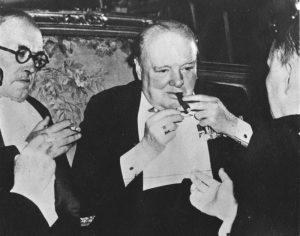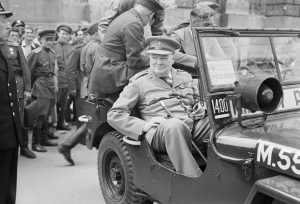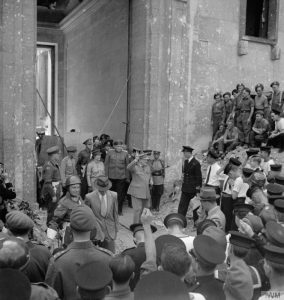
StoryElement
Potsdam Conference

Winston Churchill, Parliament Square, London © Sue Lowry & Magellan PR
July 17, 1945
In July 1945, Churchill attended his final act of the War; the first sessions of the Potsdam Conference – the last time he would meet Stalin – where the aims were to establish the post-war order, peace treaty issues and how the world could being to address the enormous effects of the war on countries and peoples.
Although Victory was celebrated in Europe, the war in the east still had a few more months to run.
On the second day of the Potsdam Conference, Truman told Churchill that an atomic bomb had been successfully detonated in the New Mexico desert. A fortnight earlier, in keeping with the Quebec Agreement, Churchill had agreed to the use of the new weapon against Japan. Though he’d left office by the time the bombs fell, and the decision was ultimately Truman’s, Churchill was conscious of his responsibility. Although the success of the testing in New Mexico hadn’t given him any doubts at the time (he likened the atomic bomb to ‘the Second Coming in Wrath’; the war might now be ended without the need for an invasion of Japan and yet more casualties), he later amended his view.
But of course, the Cold War was imminent, and his idealistic vision of nuclear weapons as a ‘perennial fountain of world prosperity’ couldn’t be further from reality.
Subscribe
WANT MORE?
Get the Churchill Bulletin delivered to your inbox once a month.




